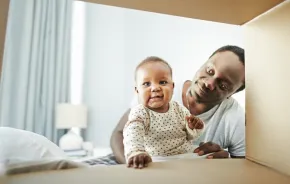Recently, I was in the checkout line at the grocery store. A couple in front of me was arguing loudly. Their tone was harsh, their words were mean and their body language was obviously negative. When they got to the counter, their behavior changed. They were pleasant to the checker, friendly with one another, and their body language was open. They were kind. Why the sudden change?
As I watched them push their cart out of the store, their irritation was back; their kindness was gone.

This incident illustrates the human ability to choose behavior in the moment. In every interaction with your partner, you can choose to be kind, choose to be mean or even indifferent. Many people have the ability to turn kindness on and off — as if it were connected to a switch. In relationships, we often take our frustrations out on those we love. Why? What’s the motivation for treating our partners poorly, yet offering niceties to complete strangers?
Why be unkind?
There are many possible answers to this question. First, life is stressful and complicated, and we all need an outlet to vent annoyances. Second, some couples think it’s safe to be rude to one another, thinking, “He has to stay with me anyway” or “I can just apologize later.” But the damaging effects of being unkind are cumulative. Bringing kindness into your home will change your relationship for the better. “Kindness” is a word that gets used often, but what does it mean? Simply put, it is the act of being considerate and compassionate toward others. It means turning toward the other person, rather than turning away. Kindness is not doing something just to get your needs met. Instead, it is doing something because you care about the person. Many couples believe that today’s hurry-up pace means that there is no time for kindness. They believe efficiency requires being abrupt or rude. Not so, shows the research.
A powerful effect
Imagine that your partner treats you with kindness and expresses appreciation without you having to ask. This makes you feel appreciated, respected and more positive about your relationship. More importantly, kindness is contagious. Research shows that when a person is treated with kindness, they want to “return the favor.” Kindness has a powerful circular effect.
Studies conducted at the Relationship Research Institute show that one of the most important components of a successful relationship is kindness. Couples who are kind to one another and who treat one another with mutual respect are happier and more satisfied. This is called the positive perspective.
Research indicates that there are many unexpected benefits for couples who practice the positive perspective. They are physically healthier, have decreased stress, improved social experiences and as an added benefit, a better sex life. Parents who treat one another with kindness teach compassion to their children.
Acting with kindness does not mean that every day has to be rosy or that relationship problems should be ignored. In fact, conflict will (and should) occur in every relationship. Instead, the positive perspective allows you to find the good in your partner. Usually, couples who find this perspective impossible have ongoing issues in their relationships, such as a fear of getting hurt, a need for control, fear of judgment, ongoing anger issues or toxic behaviors, such as substance abuse. In these instances, therapeutic help is recommended.
How to get there
How can you and your partner practice the positive perspective? There is a simple, research-tested answer: Create a culture of appreciation in your family. To do this, you must change the way you think, and assume the best intentions. Let’s say you ask your partner to record “Desperate Housewives” or “Monday Night Football,” and then it doesn’t happen. Do you assume your spouse forgot or that it was intentional? What if you wake in the morning to find that the dishwasher is full and your partner didn’t run it: Do you assume it was a mistake? Or, do you assume the intent was to sabotage the family breakfast with dirty cereal bowls?
Making the decision to choose the positive perspective will ultimately change your relationship and help to ensure its long-term success. Take a moment and think of how you treated one another while you were dating. Those were the behaviors that made you fall in love with one another. Achieving kindness is possible.
I have heard couples say, “I shouldn’t have to say please and thank you when I ask for something at home.” Research shows that quite the opposite is true! No one likes to be ordered around. Instead, treat your spouse as you would a guest. Ask for help. Say please and thank you. Express appreciation when he or she goes the extra mile. Build positive experiences in your relationship. Choose kindness — you have the choice. No one is kind all the time, but when you make it a priority, it can make a big difference, both in your relationship and for your own peace of mind. Here’s wishing you many random acts of kindness!
Carolyn Pirak is the director of the national Bringing Baby Home program. She is married and the mother of two children.
How to build the positive perspective:
Step 1: Look for the positives in your relationship. Remember, although you cannot choose your partner’s behaviors, you can choose your response to the behaviors.
Step 2: Focus on your partner’s good qualities. Ask your partner
to do the same for you.
Step 3: Acknowledge kindness expressed by your partner. Make it a two-way street.
Step 4: Communicate kindness. Speaking harshly or using
criticism can cause unnecessary pain. Choosing to speak in a
kind tone can improve the quality of your relationship.
Step 5: When you choose to
be unkind, ask yourself why. Understand the motives for
your behavior.









